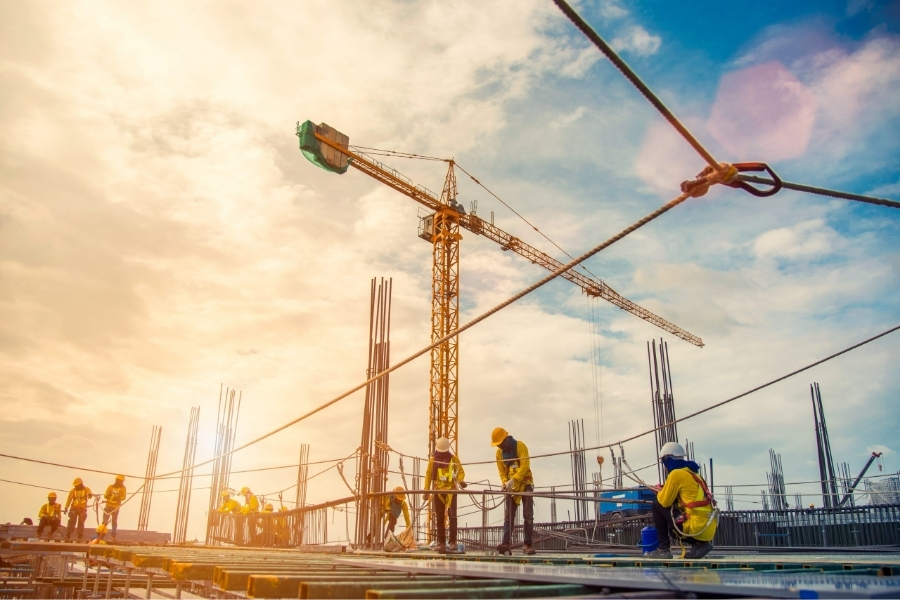Cranes are indispensable in construction, manufacturing, and logistics industries. Whether it’s lifting heavy materials on a construction site, loading cargo at a dock, or assembling machinery in a factory, the right crane can significantly impact the success of your project. However, with a wide variety of cranes available, choosing the right one can be challenging. In this guide, we’ll walk you through the key factors to consider when selecting the perfect crane for your needs.
1. Understand the Scope of Your Project
The first step in selecting the right crane is to clearly understand the project requirements. Ask yourself:
- What is the weight of the load?
Cranes have specific weight limits. Overloading a crane can lead to catastrophic failures. Always ensure that the crane you choose has the capacity to handle your heaviest load. - What is the lifting height?
Determine the maximum height you need to lift the load. Some cranes are designed for high-rise projects, while others work best for lower elevations. - What is the distance for the lift?
Evaluate the horizontal reach required for the project. If the load needs to be transported over a large area, a crane with a long boom or jib will be necessary.
By analyzing these factors, you can narrow down the type of crane you need, such as a tower crane, mobile crane, or crawler crane.
2. Consider the Terrain and Work Environment
The worksite conditions play a critical role in crane selection. For instance:
- Rough terrain: If your project is located on uneven or muddy ground, a rough-terrain crane or an all-terrain crane is ideal. These cranes are equipped with large tires and four-wheel drive, ensuring stability and mobility.
- Urban areas: In tight urban spaces, a compact mobile crane or a spider crane can maneuver easily while still offering high lifting capacities.
- Indoor projects: For indoor or factory projects, an overhead crane or gantry crane is better suited than outdoor mobile options.
Assessing the work environment ensures safety and efficiency, as well as reducing the risk of operational delays.
3. Choose Between Fixed and Mobile Cranes
Depending on the nature of your project, you’ll need to decide between fixed and mobile cranes.
- Fixed Cranes: These cranes, such as tower cranes, are stationary and offer a high lifting capacity and reach. They are ideal for large-scale construction projects where heavy loads need to be lifted to great heights.
- Mobile Cranes: Mobile cranes offer flexibility and are easier to transport. Options like truck-mounted cranes or telescopic cranes are perfect for projects requiring frequent relocation or quick setups.
4. Factor in Rental vs. Purchase
Another important consideration is whether to rent or purchase the crane.
- Renting a crane is cost-effective for short-term projects. It eliminates maintenance and storage costs, making it a practical choice for one-off or infrequent usage.
- Purchasing a crane is more viable for companies with long-term or recurring needs. While the initial investment is significant, owning a crane can reduce operational costs in the long run.
5. Safety Features and Compliance
Safety should always be a priority when working with heavy machinery. Ensure that the crane you choose is equipped with modern safety features such as:
- Load moment indicators (LMIs)
- Anti-collision systems
- Automatic brakes
- Emergency stop controls
Additionally, verify that the crane complies with local regulations and standards. Proper certifications and inspections are necessary to avoid legal complications and ensure the safety of workers on-site.
6. Evaluate Operational Efficiency
Efficiency is key to completing projects on time and within budget. When selecting a crane, consider:
- Setup time: Some cranes, like mobile cranes, have a quick setup process, while tower cranes take longer to assemble.
- Fuel efficiency: For long-term projects, opt for cranes with lower fuel consumption to reduce operational costs.
- Operator skill requirements: Certain cranes require specialized training. Ensure that your team has the expertise to handle the chosen crane, or arrange for operator services as part of the rental agreement.
7. Consult with Experts
Finally, don’t hesitate to seek professional guidance. Reputable crane providers, like 3 Tech Cranes, can assess your project requirements and recommend the best options. Their expertise ensures you get a crane that matches your project’s technical and financial needs.
Conclusion
Choosing the right crane is a crucial decision that can impact the timeline, budget, and safety of your project. By carefully evaluating factors such as load capacity, terrain, crane type, and safety features, you can ensure a successful operation. Whether your project involves towering skyscrapers or intricate factory setups, the right crane will elevate your project—literally and figuratively.
For expert advice and high-quality crane solutions, reach out to 3 Tech Cranes today!

